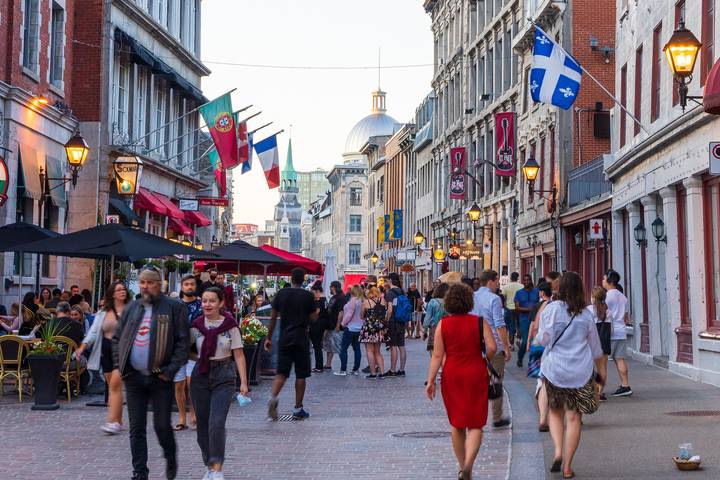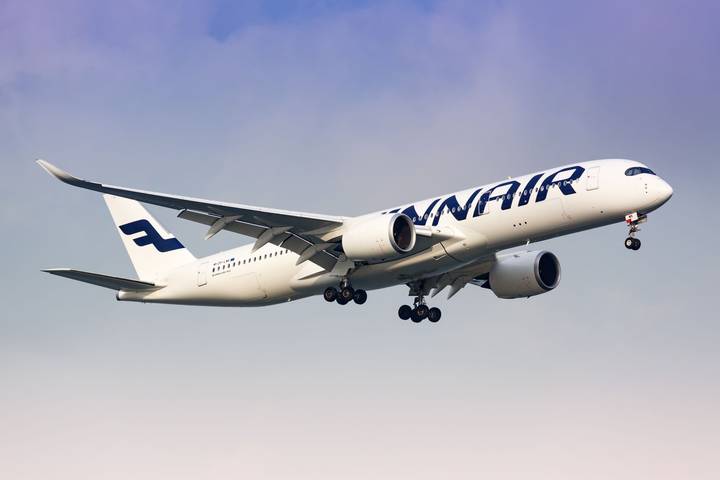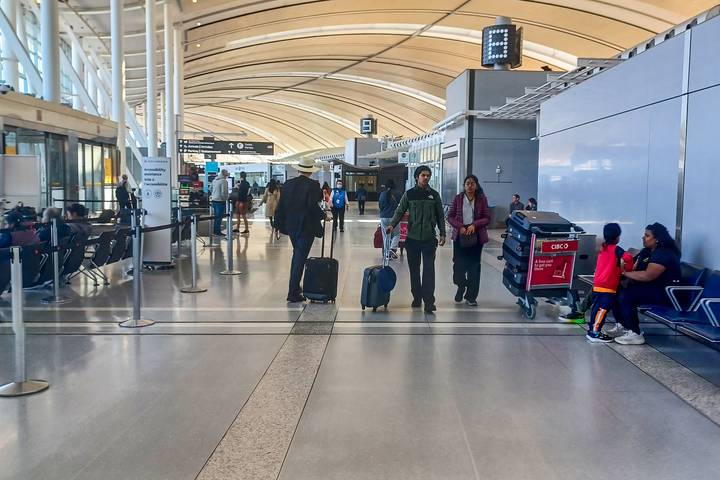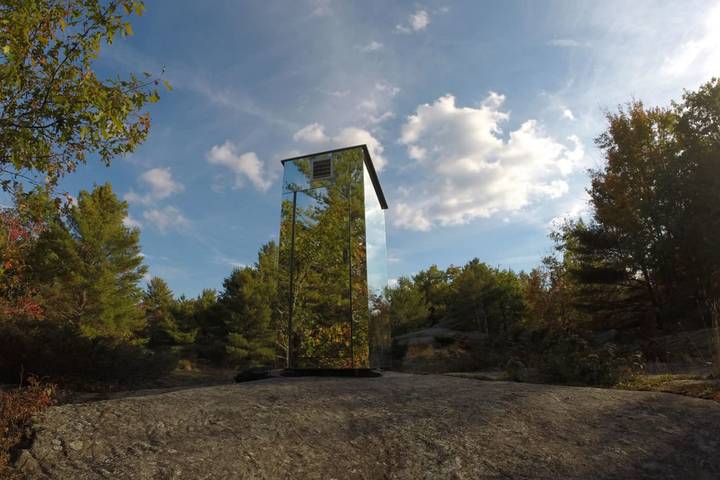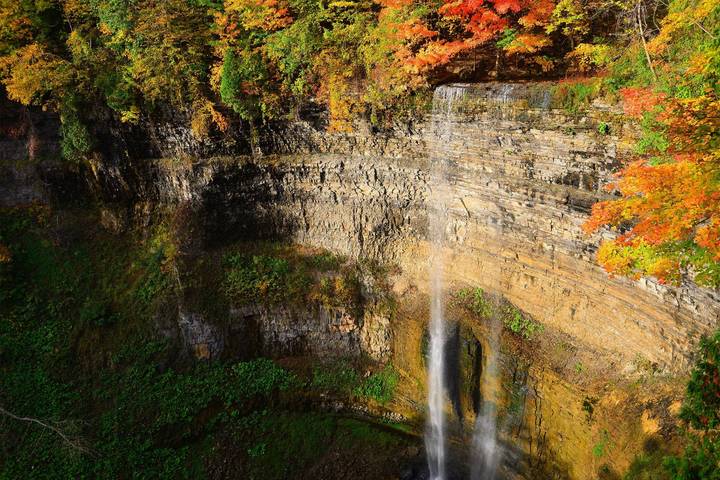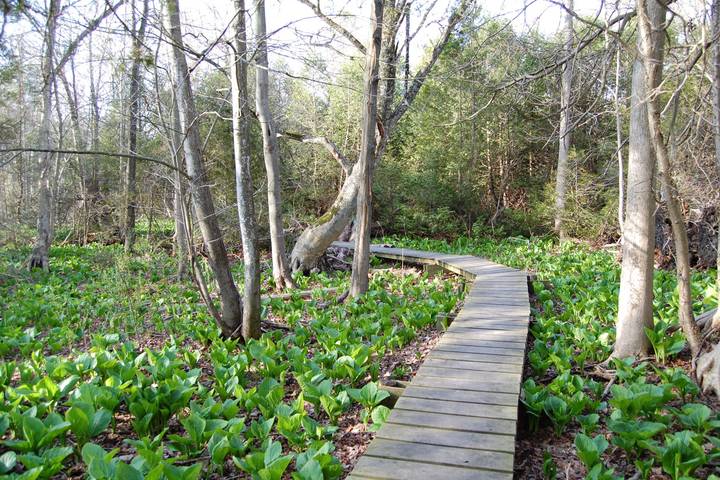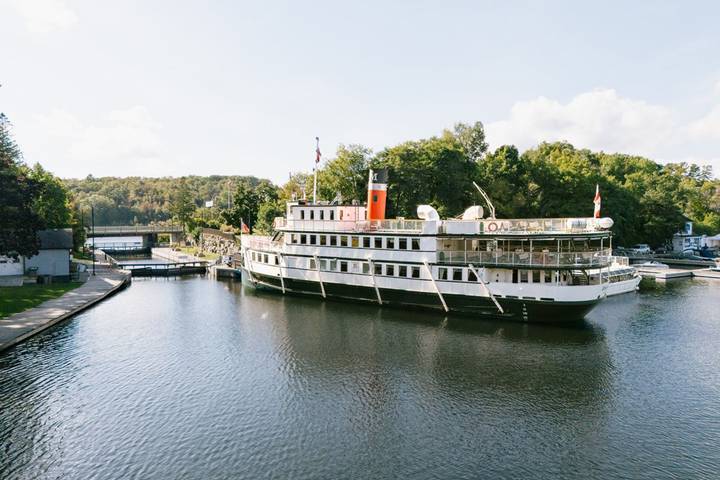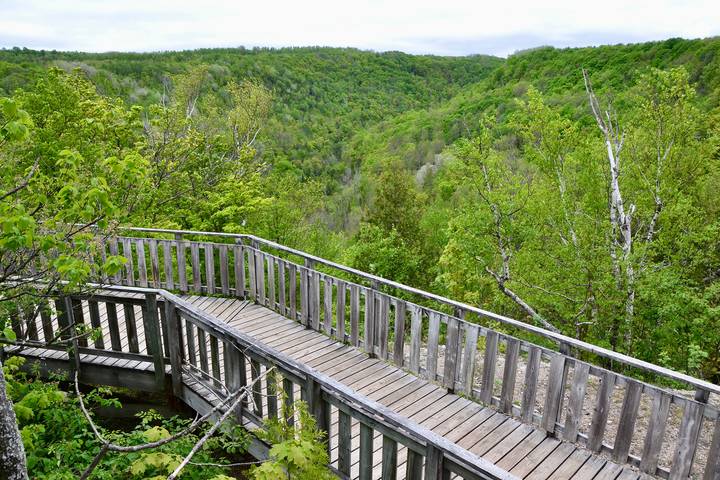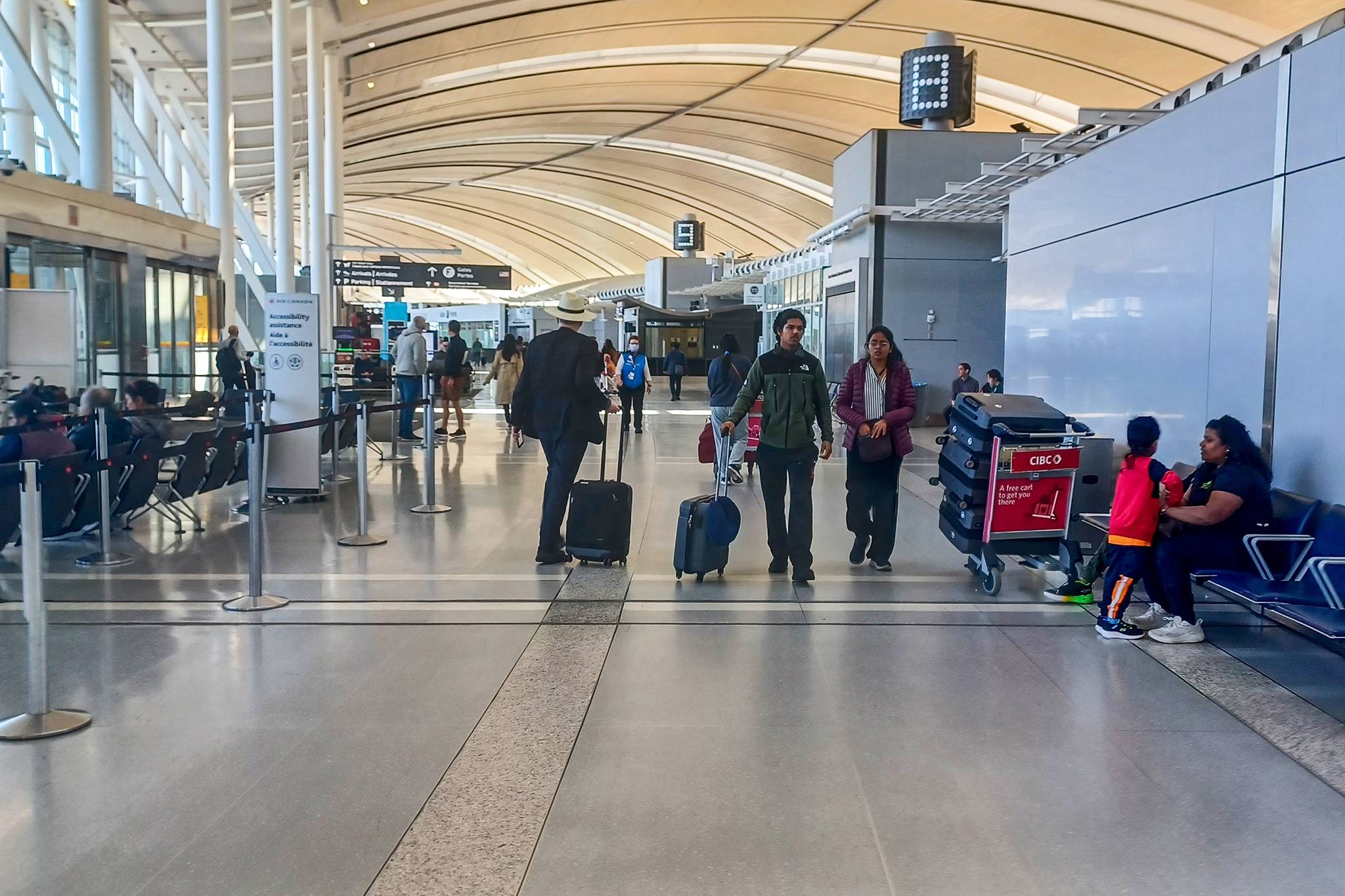
Toronto man's Nexus revoked after he was inexplicably denied entry to U.S.
A Canadian citizen is seeking answers after being denied entry into the U.S. for unclear reasons.
Ranveer* (this is a pseudonym, as he has requested to remain anonymous) held an Indian passport until 2022, when he became a Canadian citizen.
He told us that since becoming a Canadian passport holder, he had no issues travelling to the U.S., even visiting multiple times last year, which is why he's baffled by his recent denial of entry.
"I want to share my story so maybe it can help others in a similar situation, who are feeling frustrated or helpless," he shared in an email.
Denied entry and Nexus revoked
On April 26, Ranveer arrived at Pearson International Airport three and a half hours before his flight with American Airlines from Toronto to Guatemala, with a layover in Miami.
The Canadian passport holder said everything went smoothly until he reached U.S. Customs and Border Protection (CBP) pre-clearance at Pearson.
Ranveer was a Nexus cardholder, so he expected to get through customs easily. However, when it was his turn to speak with a CBP agent, he says they told him to wait in their office because they needed to vet additional information.
In a phone interview, Ranveer recalled waiting in the CBP office with around 20 people, where there was a general mood of frustration.
"People around me were missing flights. They were unhappy. They were fighting with the agent. I think one of the ladies supposedly missed her daughter's wedding because she [was denied entry]," he recounted.
He says he accepted the possibility that he would also miss his flight because the CBP had given him no timeline.
According to Ranveer, the law enforcement agency provided him with a "very detailed" form to fill out, which asked him questions about his personal life, education, work history and parents. It also requested his social media handles and a list of all the trips he had taken over the last five years.
He ended up waiting for around two to three hours (inevitably missing his flight) while being asked additional questions every couple of minutes.
Ranveer says he was asked follow-up questions about why he had gone on specific trips in the past, if he had ever received a parking ticket and if he had ever used any aliases or had a different name throughout his life.
"I answered everything truthfully. I had no tickets I could think of… I've never changed my name," he said.
Ranveer says a CBP officer eventually told him that he's not allowed to enter the U.S. because his visa, from when he had an Indian passport, was revoked this year.
"‘New information has come to light," he recalled the agent saying. "So, I asked them, 'What do you mean by new information has come to light?' And they're like, 'We cannot tell you that, but you cannot enter the U.S. right now.'"
He was instructed to apply for either a B-1 (temporary business visitor) visa or a B-2 (tourist) visa, despite his brief layover in Miami. He was also advised to take any further questions to the U.S. Consulate in Toronto.
"That visa was in my Indian passport, which has already been cancelled," said Ranveer. "That visa is obviously not valid anymore because I am a Canadian citizen and a Nexus holder, so I don't need a visa to go to the U.S."
Typically, most Canadian citizens do not require a visitor, business, transit, or other type of visa to enter the U.S. from Canada. There are specific situations in which a Canadian requires a visa to enter the U.S., which can be found on the Department of State's website; none of these were given as a reason for Ranveer's denial.
"I was getting a little frustrated because they were not giving any responses when I would ask legit questions, like, 'Give me a reason why you're not allowing me to enter the U.S.?'" said Ranveer.
"I've never given any false information. I have never broken any laws. Tell me why, and let me figure out and fix the issue. They would not give me any answers, and that was the most frustrating part."
The Toronto resident was fortunately able to rebook a direct flight to Guatemala for the next day and received flight credit from American Airlines. Unfortunately, the CBP also revoked Ranveer's Nexus pass, which he had waited nearly two years to obtain and cost him $120 USD.
In an email statement to us, the CBP did not provide an apparent reason as to why Ranveer was denied entry. The spokesperson instead highlighted a "sharp decline in illegal immigration" under U.S. President Donald Trump's administration.
"This reduction has allowed our law enforcement personnel to get back to doing law enforcement work, like conducting thorough vetting and interviews," they stated. "Those intending to enter the U.S. with fraudulent purposes or malicious intent are offered the following advice: Don't even try."
The spokesperson stressed that "a visa is a privilege, not a right" and that only individuals who respect their laws and follow proper procedures are welcome.
Ranveer says his visit to the U.S. Consulate in Toronto to find answers was also unsuccessful, as they repeated what the CBP officer had told him. The U.S. Consulate in Toronto has yet to respond to our request for comment.
He wants to be able to use the credit he received from American Airlines to visit the U.S. in the future, but he says he's worried about spending money to obtain a visa, only to be denied.
"I've been left in the dark… now I'm afraid that they will reject me for no reason even if I apply again," Ranveer said.
"System-generated lookout"
Ranveer was instructed to fill out a withdrawal of application for admission form that before leaving U.S. Customs at Pearson. It allows foreign nationals to withdraw their application to enter the U.S.
U.S.-based immigration lawyer Len Saunders told us that although the form allows people to withdraw their application, it's still essentially a denial.
"Because he's still in Canada, on Canadian soil, they can't call it a denial," explained Saunders.
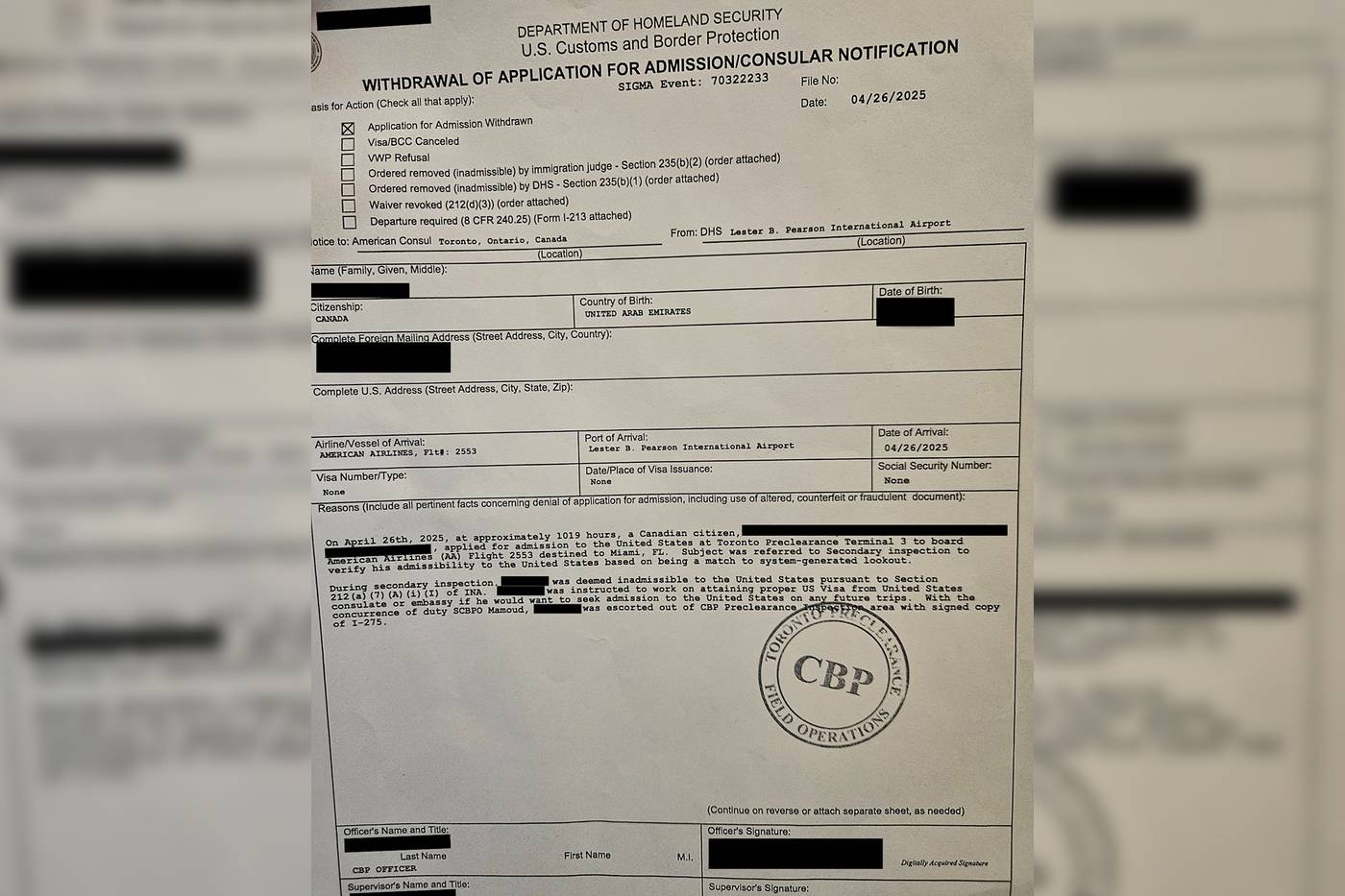
Ranveer's a withdrawal of application for admission form. Submitted.
After analyzing the reasons why Ranveer was denied entry, Saunders explained that the traveller wasn't deemed inadmissible due to fraud or misrepresentation, but rather because they matched a "system-generated lookout" and did not have the proper visa.
This automated "lookout" system alerts CBP officers to individuals who could have ties to foreign terrorist organizations and bars them from entering the U.S.
Saunders says lookouts come from the U.S. State Department and typically involve national security matters.
"It's either a name hit or background check hit, something based on his country of birth," he explained. Ranveer was born in the United Arab Emirates, a Muslim country, which Saunders says doesn't help.
Islamophobia has risen in the U.S. following the 9/11 attacks. In 2017, U.S. President Donald Trump signed an executive order dubbed the "Muslim ban" because it suspended travel from predominantly Muslim countries (Iran, Iraq, Libya, Somalia, Sudan, Syria and Yemen) for 90 days.
Despite protests and lawsuits against the travel ban, the U.S. Supreme Court ultimately allowed a third version of the executive order to be implemented in 2018, expanding the list of barred visitors. Joe Biden revoked the executive order; however, Trump revived it on his first day in office.
Saunders says Ranveer's is an example of a murky case that the CBP won't necessarily clarify.
"He doesn't need a visa; he’s Canadian. They don't want to say why, so they give the lowest denied entry reason, which is that he doesn't have proper paperwork," he added.
The lawyer recommends that people in this situation apply for a U.S. Entry Waiver, which allows inadmissible foreign nationals to request permission for temporary admission down south. If Ranveer does apply for a U.S. visa, the State Department will need to approve his application.
"He may get it in the future, he may not. There's no guarantee," said Saunders.
Global Affairs told us in an email that the Government of Canada cannot intervene on behalf of travellers who don't meet the entry requirements of another country.
Trump's administration continues to tighten its borders. In April, it implemented a rule requiring Canadians and other foreign nationals to register with the American government if they plan on visiting for more than 30 days. This week, the White House announced a travel ban on 19 countries, including Iran, Haiti and Myanmar.
"It seems certain this isn't about me, but about the new administration's policies, which are unreasonable," Ranveer said in response to the CBP's statement.
He says he understands that a visa is a privilege, not a right, but reiterated that he has abided by the United States' laws, which is why he's dumbfounded by the denial.
"I just don't get it. Wonder how many more people are labelled a 'system-generated lookout,'" he said.
Ranveer isn't the only Canadian citizen who was denied entry because they didn't have a visa. In May, a Toronto student missed an awards ceremony for her dad in Brazil due to the denial.
ACHPF/Shutterstock.com
Latest Videos
Latest Videos
Join the conversation Load comments
